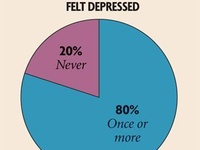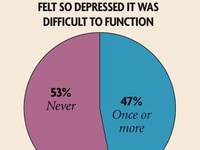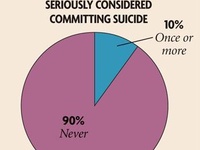A strong presence in the Harvard social scene who was known for her sense of style, Smith was the last person many would have expected to take her life.
Melissa M. Lo ’04, one of her roommates, said Smith seemed happy with her classes when they spoke in a routine conversation about the weather the night before her death.
“She seemed to be fine,” Lo said shortly after Smith’s death. “I think she was listening to music, and it seemed upbeat.”
Mental health advocates say that many students do not recognize that mental illness probably affects someone in their life.
“If it’s not you, it’s your roommate, your boyfriend or girlfriend, your teammate,” says Jeremy R. Jenkins ’97-’98, a co-founder of the Mental Health Advocacy and Awareness Group who has suffered from serious depression. “It can be dealt with, but not if it’s hidden.”
Smith’s death illustrates what can happen when mental illness goes untreated.
“People are dying over this,” says Jenkins.
At least 15 Harvard students have committed suicide in the past 10 years. Eight of them were undergraduates.
One percent of undergraduates have attempted to commit suicide in the past year, according to the recent Crimson poll.
But exact numbers about how many Harvard students attempt to commit suicide every year are unavailable from the University.
The Harvard University Police Department (HUPD) has responded to 14 attempted suicides since 2000, according to HUPD Spokesperson Steven G. Catalano.
UHS does not calculate exact numbers, Kadison says, because it is difficult to determine what constitutes a suicide attempt.
“There are many hospitalizations, often because students are feeling suicidal,” he says. “Where do you draw the line? If they’re cutting themselves? Drinking to a certain point? Taking four Tylenol?”
Help Wanted
Harvard’s mental health services have been in high demand in recent years.
Read more in News
Chapel May Remain in Cambridge Permanently















